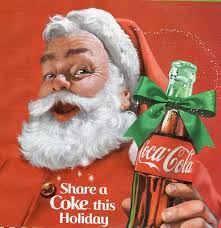This is the same reason police should not have a union. They already have a monopoly on use of force, for which they are immune from the repercussions.
ACAB.
Cops don’t have unions. They have associations stretching the definition of the word “benevolent” long past breaking.
A police benevolent association is like a giraffe pescetarian club.
Last year, a woman in Albany, N.Y., filed a complaint with the civilian board responsible for investigating allegations of misconduct by the city’s police: She believed officers had not thoroughly investigated her claim that the father of her 3-year-old daughter had sexually assaulted the girl.
But when the board asked the Albany Police Department for a copy of the case file and issued subpoenas to compel the investigators to answer questions, the police refused to cooperate. Releasing investigative files, they argued, could endanger victims, according to internal emails.
Eric Hawkins, the police chief, also told the board that he would not allow officers or detectives to cooperate with any of the panel’s investigations because forcing officers to respond to subpoenas would violate the police union’s contract, according to a lawsuit the board filed against the Police Department.
The resistance to the Albany board’s demands is emblematic of the struggles such panels continue to face across the United States, decades after being created to increase police accountability.
JFC already! Then give the civilian oversight committees a mouthful of big sharp teeth so they can force these assholes to be accountable to anyone but themselves!!!
F U CK sakes already!
ACAB x 10,000
Well, the board doesn’t have any actual power? That seems flawed, if the board is supposed to hold the police accountable, I see no way that’s possible without some power. Like removing the asshole police chief that thinks his department is above being held accountable.
My own city’s oversight board (that includes civilians) is essentiallly the same - no bite and little bark.
Cops spooked the depth of their perfidious conduct will be revealed; City spooked by thoughts of lawsuits; Civilian review boards will swing in the wind.
and some of the cops bad actions are directed by rich/powerful people with dirty laundry.
Cops DON’T cooperate with these boards because they have NOTHING to HIDE!
This is the best summary I could come up with:
The suit, filed in state court, accuses the city, the department and Chief Hawkins of undermining the board’s ability to review cases independently, including by repeatedly ignoring “lawfully issued” subpoenas to interview officers.
Stephen J. Rehfuss, a lawyer for the Albany Police Benevolent Association, filed a motion asking for the lawsuit to be dismissed, arguing that the board was requiring officers to submit to interviews even though it did not have the power to protect them from prosecution.
“Imagine being a doctor and being evaluated on the conduct of your care by someone who has no idea what your own community standard might be,” State Representative Daniel Alvarez, a Republican, told his colleagues during debate on the bill.
But a police oversight board without investigative powers is largely ineffective, said Ajenai Clemmons, an assistant professor of public policy in the Josef Korbel School of International Studies at the University of Denver.
More than 70 percent of Albany voters approved the 2021 referendum that expanded the review panel’s investigative authority by empowering the board to demand case files and subpoena officers.
The board hired an outside company that recruits retired police officers to investigate misconduct accusations, and the firm began examining several cases, including the one involving the 3-year-old girl.
The original article contains 1,506 words, the summary contains 209 words. Saved 86%. I’m a bot and I’m open source!
No matter what field you’re in, NOBODY wants outside oversight. And certainly not by people who’ve never worked that job.
Considering the current climate of public-police relations in the US, their resistance to oversight is rather understandable.
To be clear: there SHOULD be oversight, but it’s never ever going to be easy.
Considering the current climate of public-police relations in the US, their resistance to oversight is rather understandable.
The police are a gang paid for by the people they’re refusing to answer to. The very idea of it is ridiculous. If they don’t answer to us, who do they answer to?
You’re certainly not wrong with that interpretation.
Policing is a murky concept in general. They themselves aren’t even clear on who and how they serve.
In general, police should enforce laws that we ‘as a society’ deem important. But we’ve insulated ourselves from that by several layers. We elect politicians who make laws and appoint people who appoint others who appoint others who do the actual policing. What should be a community service and community responsibility is now effectively its own separate branch.
Basically, the police exist because… they exist, and it’s a system that perpetuates itself. It’s not like with firefighters or garbage men who have clear responsibilities and directly help their actual communities.
In an ideal society, a community would appoint their own police officers from within their own community to enforce (or not) their own set of community laws. But since we’ve effectively deferred that responsibility to higher political offices, that’s pretty much impossible. It’s also why the public and police are at odds with each other: the public rightly feels that officers tend to be separate from their community, rather than a part of it.





